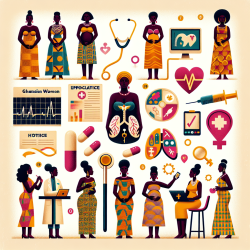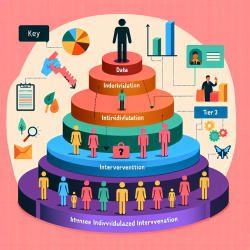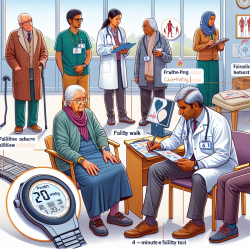The Power of Data: Enhancing Abortion Self-Efficacy Among Ghanaian Women
In the realm of reproductive health, understanding the factors influencing abortion decisions is crucial, particularly in regions like Ghana where unsafe abortions pose significant health risks. A recent study titled Abortion experience and self-efficacy: exploring socioeconomic profiles of GHANAIAN women sheds light on the intricate relationship between abortion self-efficacy and socioeconomic factors. This blog aims to guide practitioners in leveraging these insights to improve outcomes for women.
Key Findings from the Study
The research highlights several critical correlations:
- Women with higher education levels are more likely to opt for safe abortion methods.
- Financial independence, indicated by personal bank account ownership, significantly enhances a woman's self-efficacy and her likelihood to choose safe abortion practices.
- Access to healthcare facilities and perceptions of the legality of abortion are pivotal in shaping abortion decisions.
These findings suggest that empowering women through education and financial resources can lead to safer reproductive health decisions.
Implications for Practitioners
For practitioners working in the field of reproductive health, these insights offer actionable strategies:
- Promote Financial Independence: Encourage initiatives that provide women with access to financial services, such as opening bank accounts, which can increase their autonomy in health-related decisions.
- Enhance Educational Opportunities: Support educational programs that focus on reproductive health and rights, empowering women with the knowledge to make informed decisions.
- Improve Access to Healthcare: Advocate for policies that enhance access to healthcare facilities, ensuring that women can seek safe abortion services when needed.
By focusing on these areas, practitioners can help reduce the incidence of unsafe abortions and improve overall maternal health outcomes.
Encouraging Further Research
While the study provides valuable insights, it also opens avenues for further research. Practitioners are encouraged to explore the following areas:
- The impact of cultural beliefs on abortion self-efficacy and decision-making.
- The role of partner support in influencing women's reproductive health choices.
- Longitudinal studies to assess the long-term effects of increased self-efficacy on reproductive health outcomes.
By delving deeper into these topics, researchers can contribute to a more comprehensive understanding of the factors influencing women's health decisions.
To read the original research paper, please follow this link: Abortion experience and self-efficacy: exploring socioeconomic profiles of GHANAIAN women.










